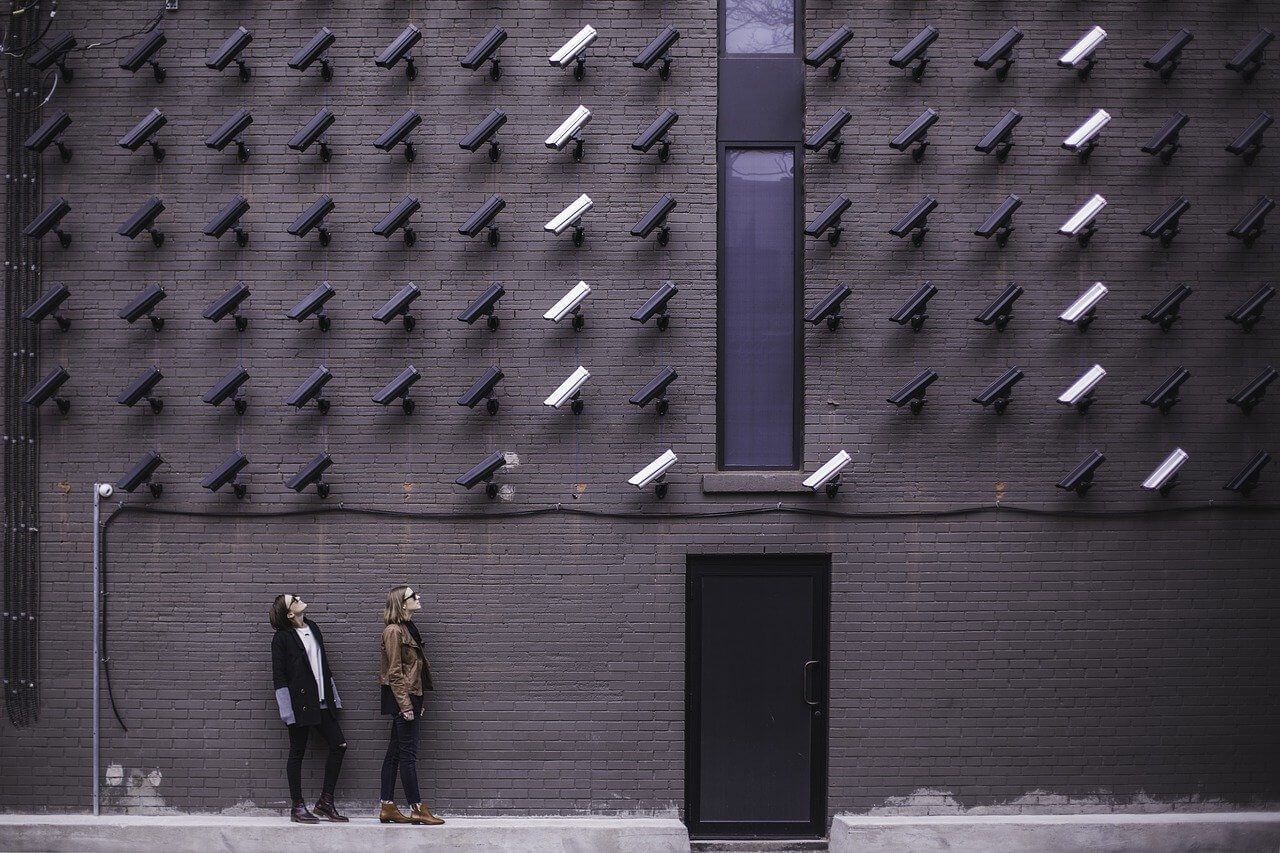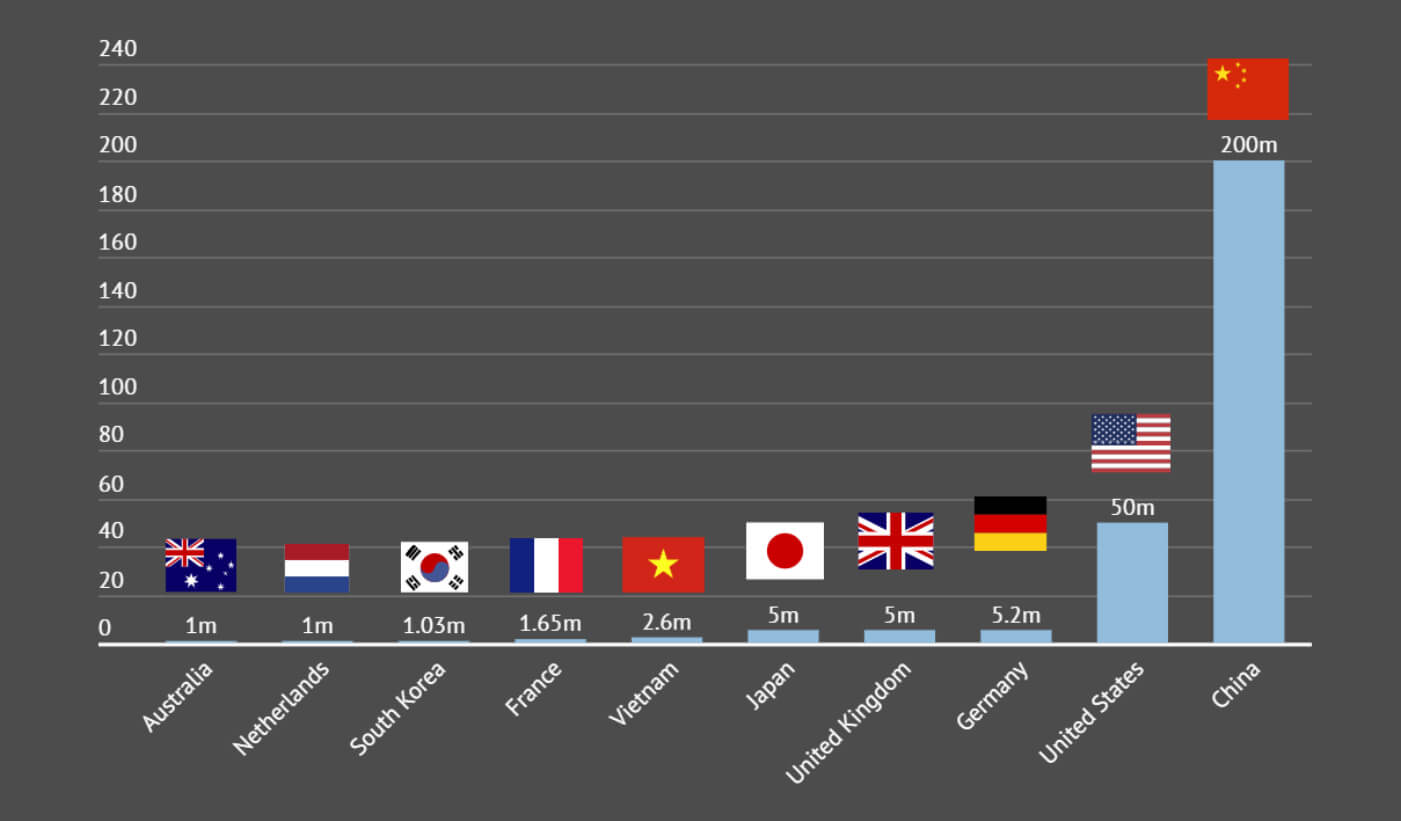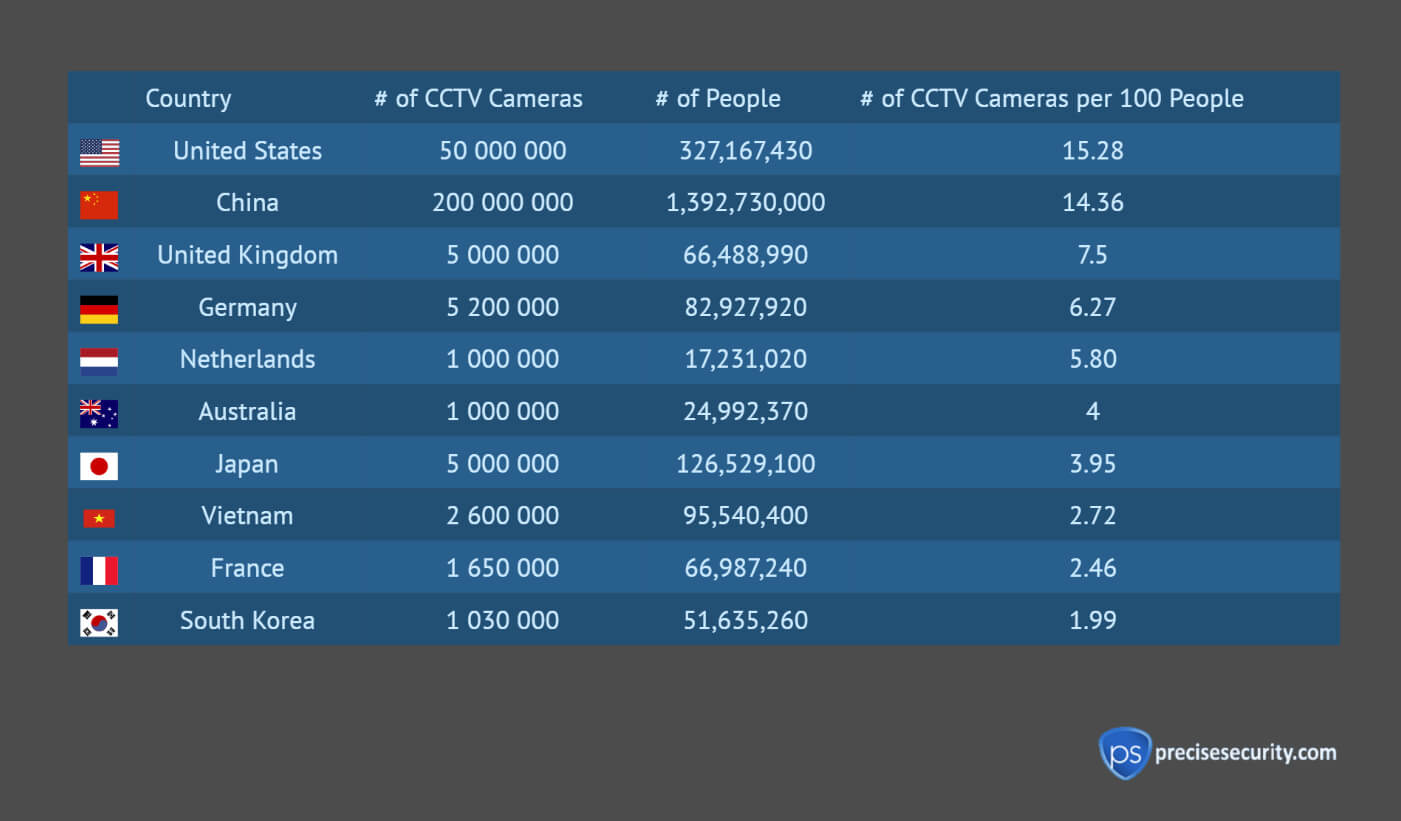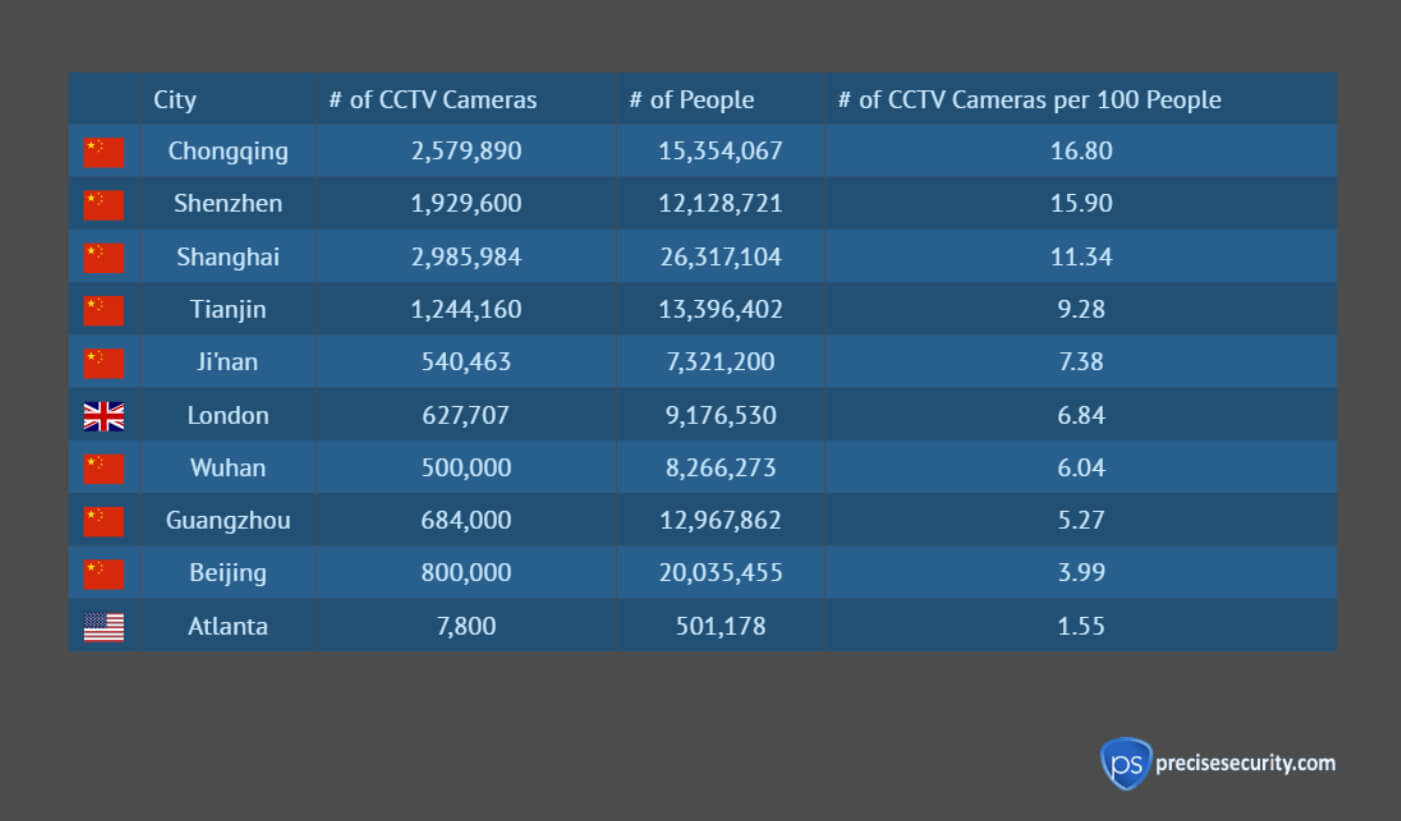In brief: With governments ever seeking to have more control over their population, data from the computer security website, PreciseSecurity, reveals the top ten countries and cities with the highest number of CCTV cameras.

PreciseSecurity notes the definition of a CCTV as "a TV system in which signals are not publicly distributed but are monitored, primarily for surveillance and security purposes," and found that the US tops the list when it comes to the number of surveillance camera installations per capita, with 50 million CCTVs monitoring the entire US population of over 327 million people.
Source: PreciseSecurity.com and Comparitech
However, in terms of overall CCTV installations, China eclipses that figure by four times and was reported to have at least 200 million cameras installed for its 1.39 billion people. Since it has to cover a much larger population than (most) other countries, the number of CCTV cameras per 100 people comes out at 14.36, as compared to 15.28 for the US.
Notable absentees from the above data include Russia, India, and Brazil, which, according to PreciseSecurity, only reported CCTV installation data for a few cities. India had 274,784 cameras spread over nine major cities, while Russia had a total of 195,000 cameras in the cities of Moscow and St. Petersburg. Brazil was noted to have 22,384 CCTVs among 10 major cities.
When it comes to the world's most surveilled cities for every 100 people, China dominates the list with 8 entries in the top 10. The only places not in China include London, which makes an appearance at number 6 and Atlanta at number 10, where a population of over half-a-million citizens is monitored by 7,800 cameras.
https://www.techspot.com/news/83061-report-finds-us-has-largest-number-surveillance-cameras.html


